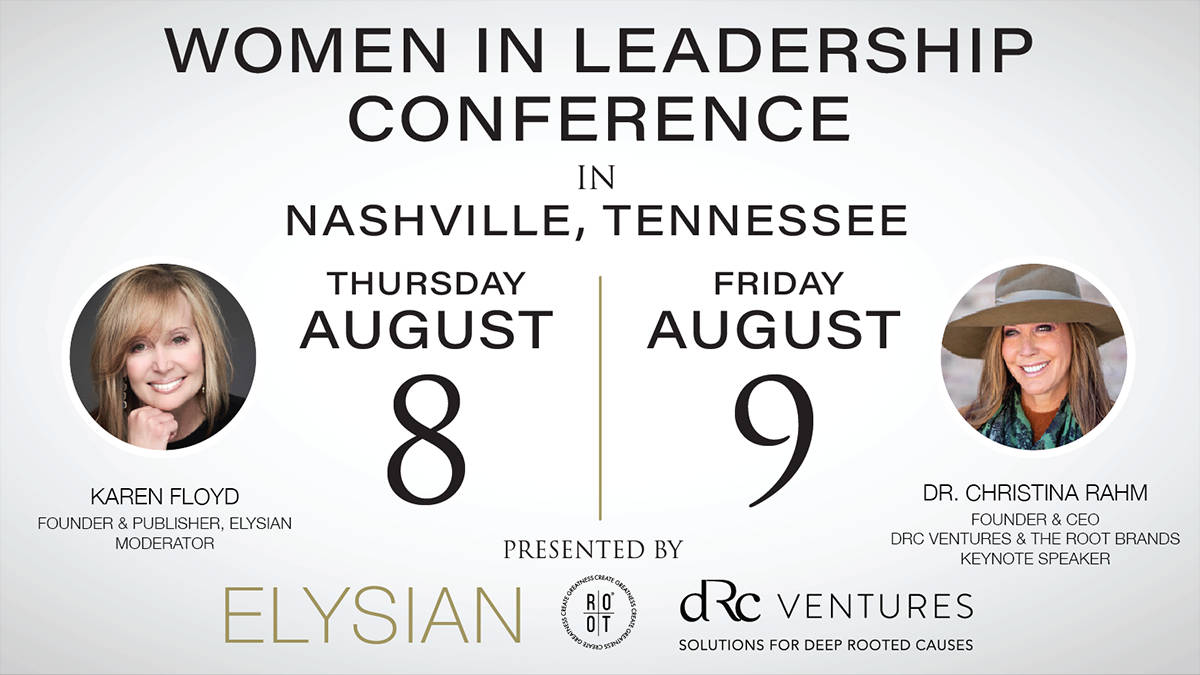Writing was a childhood dream for Annabel Monaghan, one that was pushed aside by a financial career and raising a family. After a series of surgeries, that long-dormant spark ignited into a powerful flame, resulting in her first adult novel, Nora Goes Off Script, in 2022.
Always one for a happy ending, Annabel became self-actualized later in life, as she learned about herself while developing characters for her books. A true romantic—she still has every love letter she’s ever received—Annabel also uses her craft to explore feelings of anticipation and yearning. Writing, after all, is a window into your true self . . . and Annabel’s is full of warmth, humor, and love. Her next book, Same Time Next Summer, debuts in June 2023.
You left sunny California to attend Duke University? What prompted that cross-country?
When I was 17 years old, my main goal was to move away from home. It was time and I wanted to have a little bit of space. Duke has a great English department, which was what I wanted to study. Duke accepted me, which was also a big and deciding factor. It is a wonderful school, and I had a great experience there.
How old were you when you married?
I was twenty-six. He was thirty.
Where did you meet?
We met in business school where we were in the same class.
Tell me about your experience at the Wharton School of Business.
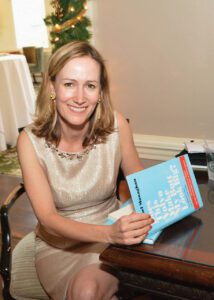
Annabel Monaghan with her book, “Does This Volvo Make My Butt Look Big?”
Business school is very fun, though it certainly does not play into my skill set. I am more of a “letter” person than a “number” person. Business school is also very collaborative. Because you work in teams, it is very social. Imagine all these adults who have returned to school and think they are college kids, again. We had a great time.
Did you anticipate moving to New York from business school, and what did you do in NYC?
Yes, because I was studying finance, and NYC is the hub of the financial job market. I worked in investment banking which does not make any sense. When I was a senior in college it occurred to me, I could not get a job being a novelist, even though I had prepared my whole life to be a writer and taken all the requisite writing classes to realize that dream. In business school, my plan was to move to New York City where all my friends were working. I accepted a position at Goldman Sachs. Though the original plan was that I would work during the day and write at night.
How did that work for you?
Goldman Sachs was not a job where you did anything else at night. I worked there for a couple of years and gave up on writing. I saw it as a childhood dream that would never happen. So, at that point in time, my plan did not work out.
Back to the idea of your childhood dream, when did you realize you wanted to be a writer?
I was six. Writing comes more from here (points to heart) than it does from here (points to head). It was something I always wanted to do. Growing up I would write stories to cope and to reframe what I saw happening around me. I wanted to retell the stories. When you are young, you should pay attention to what grabs your attention. While I spaced out in chemistry class, in English class I was very present, so I always knew that was where I belonged.
Tell me about your childhood.
It is funny how much you reveal about yourself when you write a novel. This is just a caution to everyone who decides to write a novel. You reveal a lot about yourself to yourself. When I was finished with the full draft of Nora Goes Off Script, I realized that Nora’s 10-year-old son Arthur really had the same childhood that I had. We shared similar worries; he was concerned about his family and he thought maybe he could fix their issues. When I finished writing the story I thought, oh, that happened to me? Essentially, I was experiencing something I had forgotten.
You are married and yet Nora, the book’s protagonist, has a different experience?
Yes, I have been happily married for 27 years. I was raised by a single mother, and I gave the character Nora in this book quite a bit of my mother’s qualities, though my mother was not practical in the way Nora is. They share the joy of being single and the joy of being with their children and having full control over what was happening in the family.
How many siblings do you have?
I have an older sister and I had an older brother who is deceased. He was disabled and was on a tremendous amount of medication for a long time.
Was he born with special needs?
No, he was in a car accident when he was 16 and had a head injury. He was 10 years older.
Which also impacted you…
Oh, for sure.
It made you more? Fill in the blank.
It made me more compassionate to strangers. When I am out somewhere, and if I see somebody approaching me who is different, I generally will move more toward that person. My brother was that person in his community, he was off. I think it makes you live a little more in the gray area than the black and white.
You talk a lot about living in the gray area. This idea of nuance is a consistent theme even in your writing Nora Goes Off Script. Before that, you wrote for adolescents. Why?
I think that was the best I could do at the time. As I said, you reveal a lot about yourself when writing those novels. I was fully prepared to reveal to the world my mindset when I was 17 years old. It might be very low stakes but who cares? It wasn’t until I was older that I became comfortable talking about things that matter to me. Marriage, love, raising a family, my current life.
In 2019 you were binge-watching the Hallmark channels because you were in bed from a series of women’s surgeries. I am curious about how long that endured. And then there was this epiphany . . . like a volcano, forcing you to release a pressure of sorts . . . which resulted in your writing Nora Goes Off Script.
I was in bed for three weeks watching the Hallmark channel. Yes. I feel that way all the time. I have a thousand things that rattle around in my brain. They will keep rattling until I open my laptop and get them out. Watching the Hallmark channel was just something that tickled me and then tickled me some more. I couldn’t stop thinking about what I watched, and I didn’t know what I was going to do about it, either. I wrote a short article in 2019 and I thought it was over. But it was not over, it continued nagging at me and turned into a novel.
What is that voice inside your soul that forces you to write?
I think it’s your spark, your truest self. Your soul knows there is something that it wants to say, and it looks for language to attach itself to, to get itself out.
Is this divinely inspired or from within?
I think it comes from the outside of us.
Do you ever repress ideas that want to come out?
No.
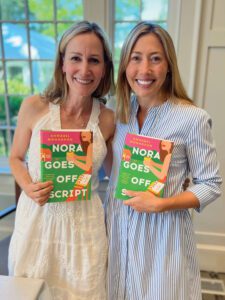
Annabel Monaghan with her book, “Nora Goes Off Script”
You have a nonconventional approach to writing that is fascinating. How do you put together a novel like Nora Goes Off Script?
I do not put it together. I let it happen. For me, this story started with a character, Nora. I thought a lot about her, what kind of a person she would be, and what sort of a situation to put her in. Wouldn’t it be fun to have a woman who was writing romantic Hallmark movies, who had never been in love? And wouldn’t it be fun if she really fell in love? I started writing the story and followed her journey. That is how I write. I don’t really have a plan except that at the end of the novel, is there a smile or a frown? Spoiler, my novels always end with a smile.
You almost reverse engineer . . .
Kind of, because once I get to the end of a first draft of a novel, I know who the characters are, and I understand their story. Then I go back to the beginning, and I make that story work.
From six to age fifty-three years old, when you wrote this book, how did you repress this “urge” to write?
I was young . . . then I was working in banking . . . then I was at home with three children . . . I consistently thought about writing. But, when little children say, “I want to be an astronaut,” you think, isn’t that adorable, but it is a ridiculous dream because it rarely will happen for them. I thought it was one of those things. I thought it was dead. I really did. I did feel a certain amount of sadness around that.
What do aspiring writers ask you and do you explain what you experienced?
Young writers often ask, “What should I be doing now so that I can be writing in the future?” I tell them two things, not complicated. They need to write all the time. Writing is a muscle. I currently write all the time. I am finishing another book right now, so I am in shape for writing. It is a little bit like running. You start and it is difficult, yet by the time you get going with it, you crave the experience. Write a lot. And you must read a lot.
Did you run today?
I did not run today because I did not have time. I am the saddest runner though, and I do not want to call myself a runner. My husband would watch this and laugh his head off. I run a mile, I walk a mile, I run a mile. I am not a marathoner.
Running is part of your routine?
Yes, I get up very early. I write before things start to happen in the day. I have a child at home, so I make breakfast and I walk my dog. I either run, walk, or do yoga and then I come back and start writing.
Does exercise clear your mind, or does it allow you to create?
Both. I basically exercise every day for health reasons because sometimes you are sitting in a chair for six hours and don’t get up. I feel better knowing that I’ve moved my body and sweated a little bit in the morning.
Your parents were divorced at how old and what did your father do?
I was five when they divorced. My father worked in technology; he was a computer guy.
Did your mother ever remarry?
My mother remarried when I was 12.
Did she ever love?
Oh, yes.
I ask this question because the character Nora falls in love and there is a happy ending. I was hoping the same was true for your mom.
My mom was the happiest person that I have ever known in my life.
Is happiness a choice?
My mother believed that happiness is the way you are wired. It was her worldview. She would shine a happy light on things, and she told me, several times in her life, that she felt very grateful that she had that sort of wiring.
Do you have that wiring?
I do. I am very happy.
Can we revisit the question is happiness a decision?
I think happiness is a habit. Waking up in the morning, maybe your plate is too full and you feel a bit overwhelmed. You can say, wow, look at my full life, rather than I don’t want to do this. Happiness is a habit. I am tired of people talking about practicing gratitude; it is overplayed. But the more you get into the habit of appreciating your life, the easier it is. I have a beautiful life.
What are you publishing next?
I have a book coming out June 6th published by Putnam Books called Same Time Next Summer.
Putnam was the same publisher as your last novel, Nora Goes Off Script?
Yes, and then I am finishing in the next two weeks a book that’s coming out in the summer of 2024. I am excited about that too.
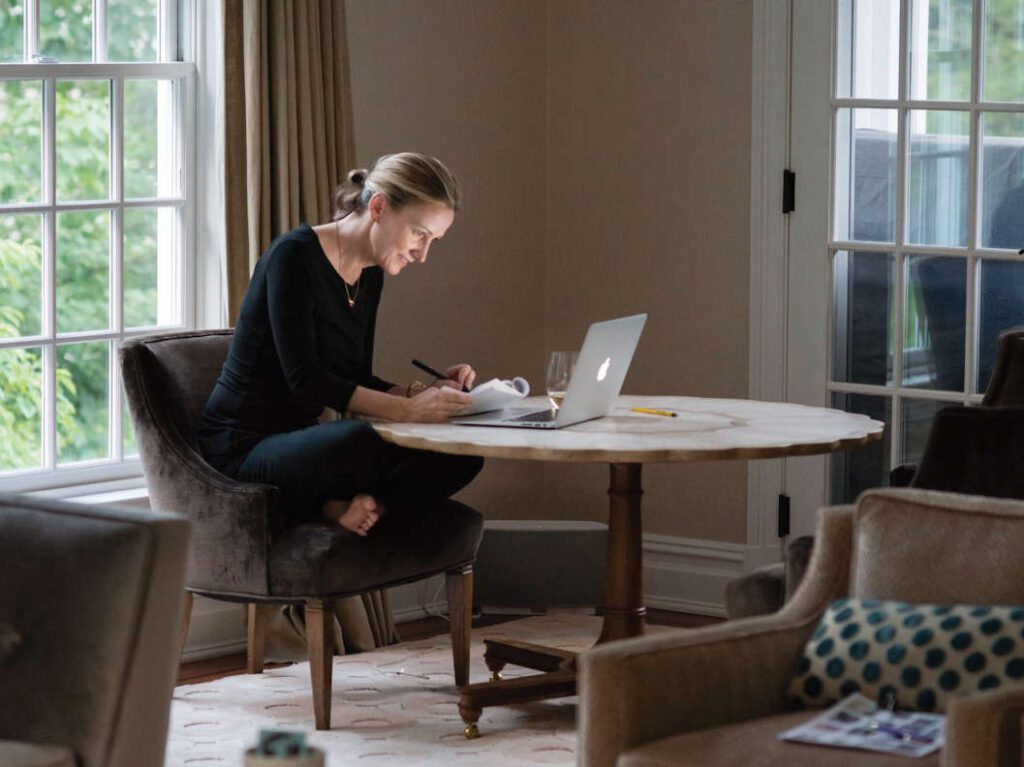 They are all love stories?
They are all love stories?
Yes, you can expect that from me no matter what kind of story I try to write. It always ends up being a love story.
You’re a romantic.
I am romantic. I am wildly in love. I really like to explore that human feeling of anticipation and yearning. I think it’s a wonderful human experience and I love to write about it.
Is your husband your soulmate?
For sure. My husband and I are not really that similar, but we are two peas in a pod, and we both really like being married to each other. So, we both show up for it. And that’s a lot of love, I think.
What makes you want to “show up” for marriage?
I like the feeling. I like maintaining and stoking that feeling. If you intend to spend the rest of your life with somebody, you might as well be happy.
Body, mind, spirit. All three.
All three.
Do you think that there would ever be anyone else that could have that connection to you?
I have never thought about that. I see the rest of my life playing out this way.
Do you share religions? And were your children raised in that religion?
We do, and our children were raised Catholic.
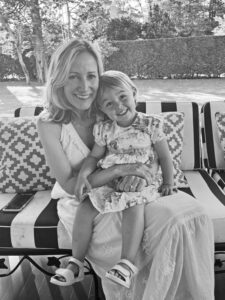
Do you find that children bring you together or pull you apart?
I have thought about this a lot. Having children with a person is two-pronged. On one hand, children can make you feel like you are part of a family because they are gluing the unit together. On the other hand, parents have different ideas on raising their children which can be a primary sort of conflict in marriage.
Was that a conscious decision you and your husband made to “pause” your career to focus on raising your three children?
Maybe I forgot to say this, but I hated working in investment banking. I was a terrible investment banker.
Why do you say that?
I have no attention to detail. I don’t know why all the numbers need to add up all the time. I am just not that kind of a person. I did that job for several years and then when I became pregnant it was certainly a conscious decision to pivot and to focus on my kids.
What is your favorite thing to do as a married couple, together?
We like to take a lot of walks.
Because?
It is just fun, to talk about things, see things, experience things.
You are both intellectually compatible?
I would say so. I do not think either of us are intellectuals, but we are intellectually compatible.
Your husband’s profession is banking. Do you share your ideas with him when you’re writing?
No, I don’t like to talk about my ideas when I’m writing. If I told you what I’m writing right now, you might have an expression on your face that I would read to mean this is a terrible idea, and then I would quit. So, I wait until the storyline is developed to share it with anyone.
On one hand, you encourage people who want to write to read what others have written. Doesn’t that hamper or impact the clarity of their individual voice?
I do not think so. I think you need to hear a lot of different voices to develop your own voice. For example, when I was young, I read a lot of Margaret Atwood. I love Margaret Atwood, but hers is a voice in which I could never write. She uses too many big words. I would read Nora Ephron, and I would think that’s a voice that resonates with me. Reading others’ works helps a writer, I believe. You will never write in someone else’s voice, but you can hone in on what your own voice is.
What’s your legacy?
I hope my legacy is leaving behind humor and things that make people feel good. When I’m writing, I am feeling joyful, and I hope that the joy that I’m feeling comes across on the page. Since my first novel, the amount of feedback from people telling me that they were having a hard time and they read my book and they felt good for a little while, has been wonderful. That is my purpose.
Are all the books you write hopeful?
Yes.
And that is a part of your spirit?
It probably is.
What triggered the last two novels?
The “spark” for the novel coming out next summer came from Philadelphia Story, a movie that I loved growing up.
Philadelphia Story is full of hope and is romantic…with sweetness, despite suffering . . . What is next?
The premise of my next book is a 30-year-old woman who is bringing her fiancé back to her parents’ beach house to look at a wedding venue. The love of her life is living next door and the storyline unravels what happened between their families and what has happened since.
I am glad your stories end happily.
Money back guaranteed that I will never write a story with a sad ending. I just would never be able to live with myself.
Would you ever write more “spicy” novels?
I would need to have a brain transplant. It honestly was so challenging for me to just write the silly little love scene paragraph that I have in Nora Goes Off Script. It took me three weeks to write it. “Spicy” is just not who I am and it’s not natural. I have read some of these books and they have a love scene that goes on for 12 pages. And I think this is just not me.
What will you be doing 15 years from now?
I would love to still be writing a book every year, talking with readers, which is invigorating.
Are you an introvert or an extrovert?
I am an introvert.
How do you get around being an introvert when promoting a book and doing the necessary touring?
It feels like you are going to a party where people are complimenting you the whole time. No one shows up at a book event to tell you, you stink. People show up to say, “I loved your book, I’m interested in your book, and tell me about the thing you created that matters more than anything to you.” It is an explosion of positive experiences. But, when the event is over, I go into a cave of darkness. I get very quiet.
The intensity of the public is something few understand. How long before you must go into “the cave of darkness” to replenish?
I am good for 90 minutes.
What piece of advice would you give a young woman, based on what you have experienced… that might be helpful in their life’s journey?
To know that you are not a joke . . . to take yourself seriously. The life that you are having right now is not a silly thing and you have great opportunities ahead of yourself. For some women in their twenties, it is an overwhelming time, and you don’t know what’s ahead. Know that there is something wonderful ahead of you. Take your life seriously.
Did you take your life seriously?
I did. I always took myself a little bit too seriously. When I was younger, I did not know that I could self-actualize. At 53 years old now, I have come into myself, and it feels good. I think understanding one’s true self could happen at a much younger age.
I believe you are headed for something spectacular.
Thank you. I am so happy to hear that.

